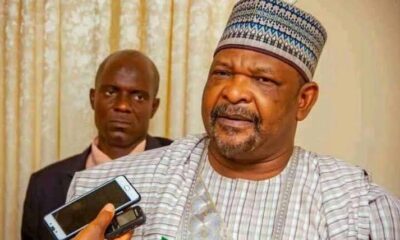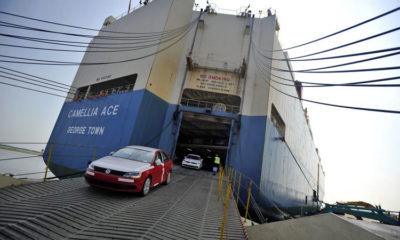- FG to Propose N9.78trn Budget for 2020 – Zainab Ahmed
The Minister of Finance, Budget and National Planning, Zainab Ahmed, has said the Federal Government plans to spend around N9.78 trillion in the 2020 fiscal year.
Ahmed disclosed this while unveiling the draft 2020-2022 Medium Term Fiscal Framework and Fiscal Strategy Paper in Abuja on Tuesday.
According to her, the 2020 budget would be forecast based on a more realistic oil production level of 2.18 million barrels per day and lower oil benchmark of $55 per barrel.
This projection was $5 lower than the $60 benchmark of 2019 and 120,000 barrels per day below the 2.3 million barrels per day predicted in 2019 budget.
The minister said, “Oil production volume is projected at average 2.18mbpd for 2020. Although this is lower than the projected oil production volume of 2.3mbps for 2019, we believe that this is a more realistic projection. For 2021 and 2022, the projections are 2.22mbpd and 2.36mbps, respectively.”
The Organisation of Petroleum Exporting Countries, the International Energy Association and the United States Energy Information Administration had projected that non-OPEC members would increase oil production by at least two million barrel in 2019 and even produce more in 2020.
She explained that the adjustment was in anticipation of future global oil glut, “a lower oil price benchmark of $55 per barrel is assumed considering the expected oil glut in 2020 as well as the need to cushion against unexpected price shock.”
Breaking down the expenditure, the minister said N526.45 billion would go to statutory transfer in 2020, up from N502.05 billion in 2019.
While debt servicing and recurrent expenditure (non-debt) would gulp N2.45 trillion and N4.7 trillion, respectively. Again more than the N2.14 trillion and N4.38 trillion budgeted in the current year.
Capital expenditure, however, would drop by N1.13 trillion to N2.05 trillion in 2020, down from N3.18 trillion budgeted in 2019.
Speaking on funding, the minister said N7.6 trillion would be raised from non-oil and oil sources.
Another N300 billion is expected to come from special levies while according to the minister, stamp duty and exchange rate differentials should add at least N200 billion and N125.48 billion, respectively.

 Forex2 weeks ago
Forex2 weeks ago


 Naira1 week ago
Naira1 week ago
 Naira4 weeks ago
Naira4 weeks ago
 Company News4 weeks ago
Company News4 weeks ago
 Billionaire Watch1 week ago
Billionaire Watch1 week ago




 Naira2 weeks ago
Naira2 weeks ago




 Naira1 week ago
Naira1 week ago




 Naira3 weeks ago
Naira3 weeks ago



















